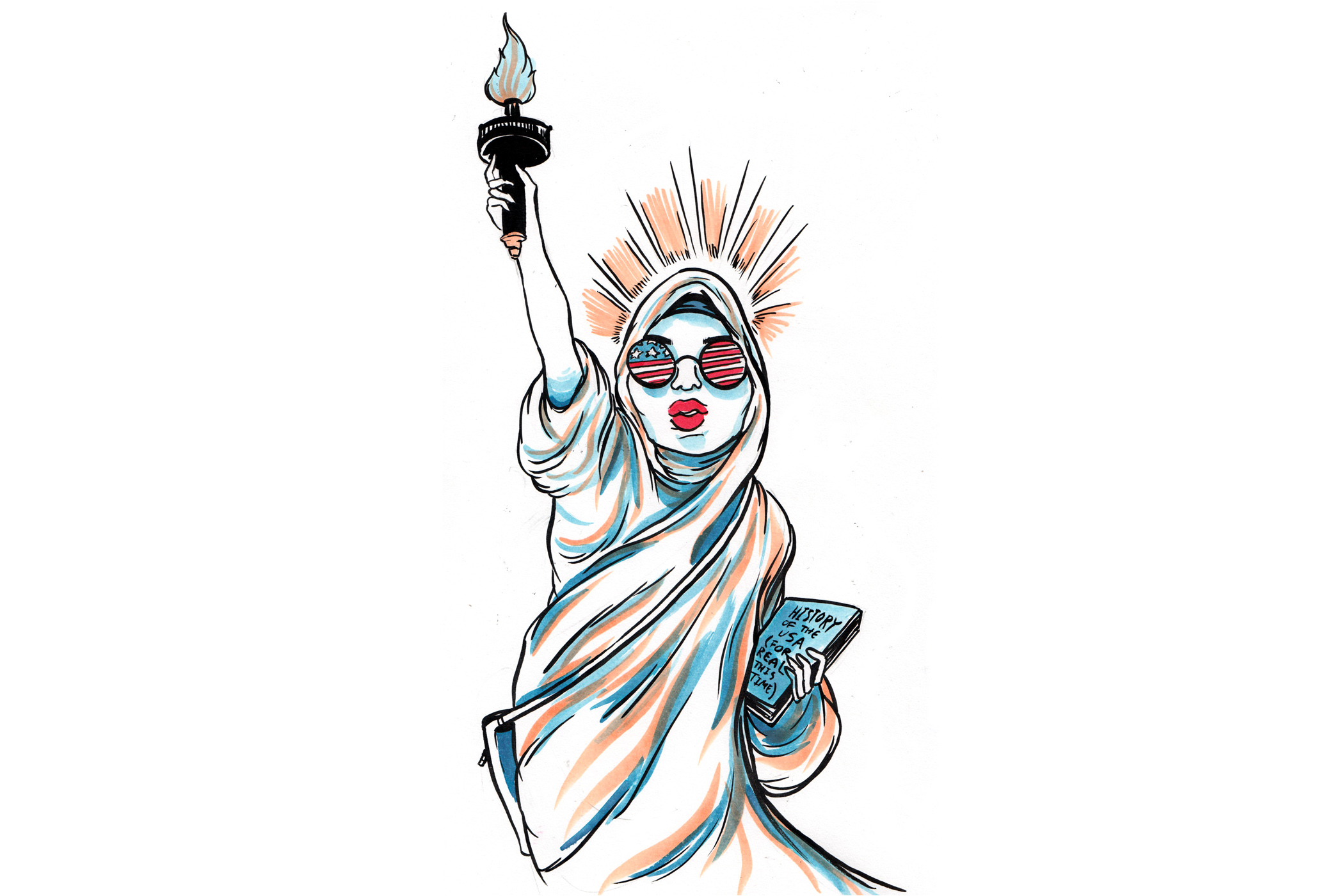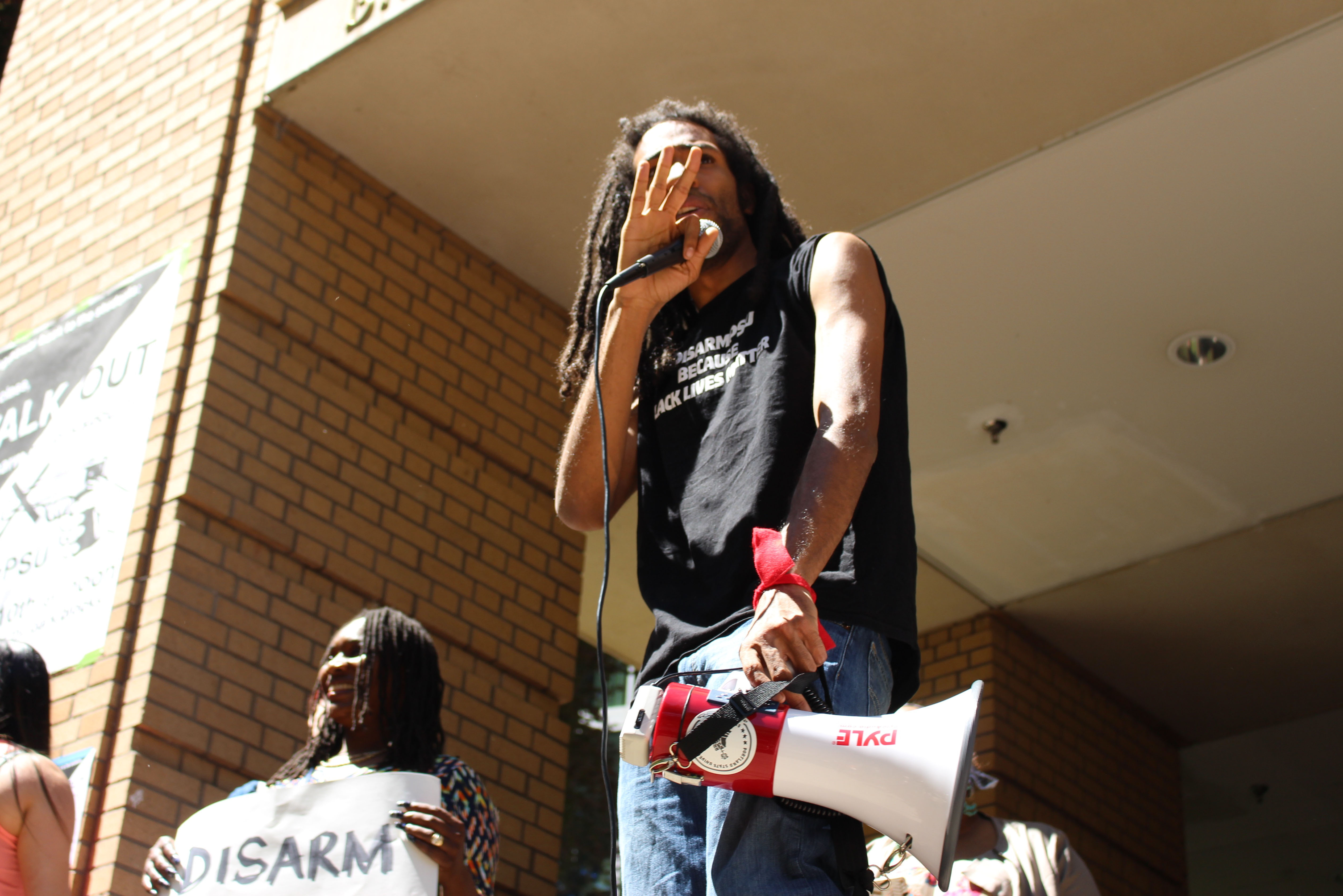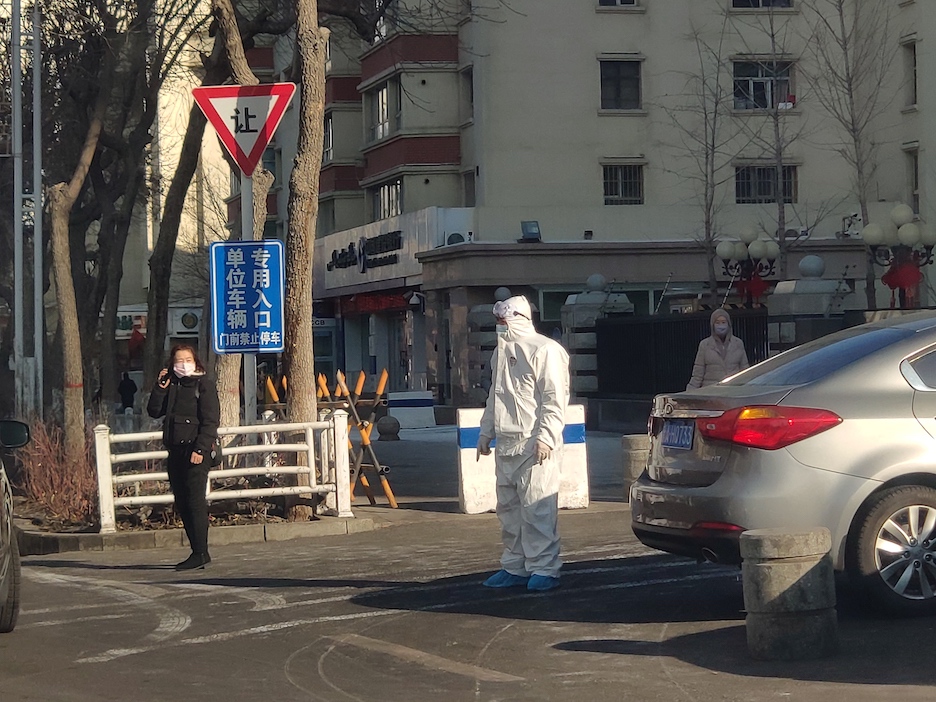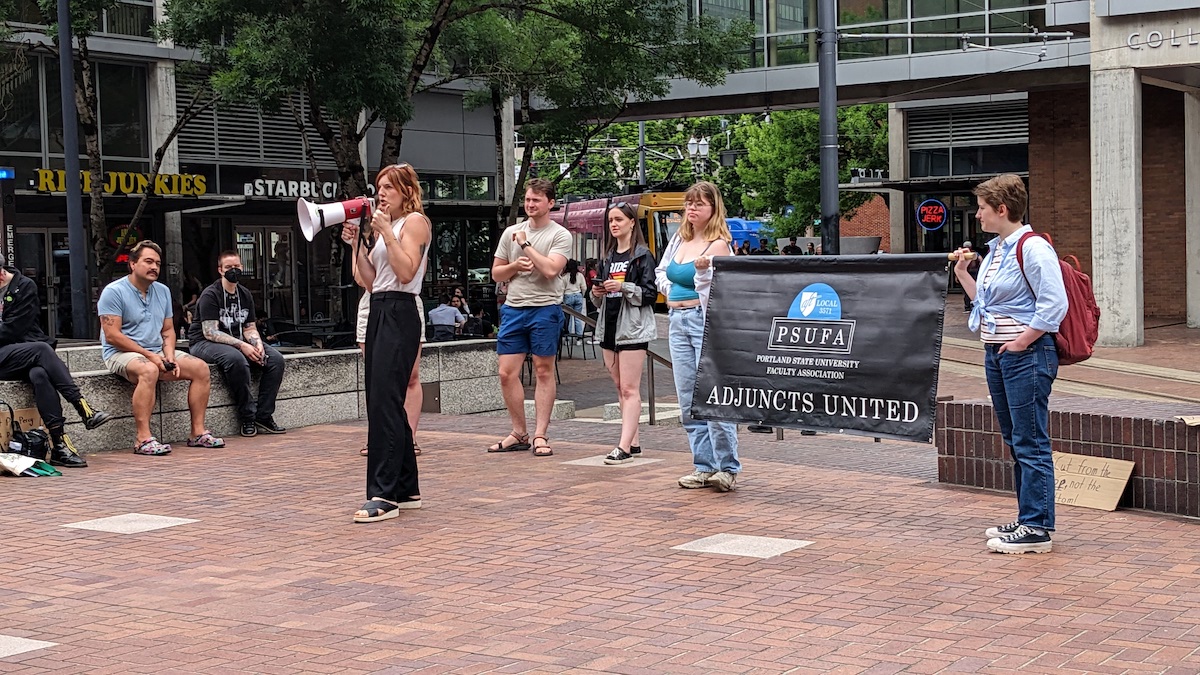The Portland State Multicultural Center hosted “We Won’t Go Back,” an event exploring immigration policy and advocacy on Feb. 16. Dr. Ronald Mize, associate professor in the School of Language, Culture and Society at Oregon State, discussed the history of immigration in the United States and how it influences our current understanding of what citizenship means.
His talk was followed by a panel of advocacy organizations who discussed how their work intersected with immigrant communities and why this work is more important now than ever.
A NATION OF (CERTAIN) IMMIGRANTS
Mize’s research focuses on the historical origins of racial, class and gender oppression in the lives of Mexicanos and Mexicanas residing in the United States. Before even addressing the complicated and fraught history of American attitudes toward immigrants, he pointed out that the history of America didn’t begin with those who now lay claim to it.
“We clearly know that there were lots of people here who were not immigrants well before the conversation about a nation had begun,” Mize said.
Even at the very beginning of that conversation, what it meant to be a citizen was very clearly defined along racial, class and gender lines.
Mize went on to chronicle a brief, if often neglected history of immigration policy following the founding of the United States, including one of the first acts of the newly formed Congress of the United States. This was the Naturalization Act of 1790, which defined who was eligible for citizenship.
The act restricted naturalization as citizens to “any alien, being a free white person.” Here, “person” meant any white man who owned property. Native Americans, women, free blacks, slaves, and indentured servants were not included.
“We are not solely a nation of immigrants,” Mize explained. “We are also a nation of chattel slaves, we’re a nation of coolie labor, we’re a nation of land and labor usurped from violence abroad. And we have to hold those together to understand who we are as a nation.”
He contrasted the oft-cited Emma Lazarus poem, which is associated with the Statue of Liberty and includes the lines, “Give me your tired, your poor, your huddled masses yearning to breathe free,” with the 1882 Chinese Exclusion Act. Enacted a year before Lazarus’ poem was written, it prohibited the immigration of all Chinese laborers.
Somewhere between the rhetoric of mythical boot-strapping immigrants that keep their heads down, play by the rules, and finally “make it” and that of foreign invaders that only want to steal jobs and take advantage of welfare lies the reality of what it really means to be an American.
PATHS TO CITIZENSHIP
Marwa Al-Khamees is a sophomore at PSU. She was born in Iraq and described how the chaos in her country during the Iraq War forced her family to leave.
“I was a first grader when [the Iraq War] happened,” she said, “and right after 2003 things just kind of went downhill and it wasn’t very safe in the country.”
After her parents received threats that led them to believe their children might be kidnapped, they decided to leave the country. But due to the proliferation of immigration restrictions following 9/11, even other Arab countries were rejecting refugees from Iraq.
“We tried Egypt,” Al-Khamees continued “we ended up paying a couple thousand dollars for each person, but we got scammed and had false hope with that. Then we tried Jordan, but they refused to give us residency, so obviously we had to go back to Iraq.”
After being denied both immigrant and refugee visas to the U.S., Al-Khamees’ family eventually found a path to citizenship through a grandmother living in the U.S. But the path was not easy.
In 2006 when her family began the process of applying for citizenship, Al-Khamees’ family was living in Syria. However, the multiple preliminary interviews that were required beforehand took place in the U.S. embassy in Iraq, so Al-Khamees and her family were forced to make trips back and forth between the two countries.
“I was missing up to three weeks of school in Syria just because of these interviews that would last for a couple days,” Al-Khamees explained, “and they would happen every other month, so they impacted my grades a lot.”
On Sept. 11, 2015, Marwa was on her way to the Veterans Memorial Coliseum to volunteer for a veteran’s resource fair. While waiting at a MAX stop, she was approached by a well-dressed man.
“He came up to me and he asked, ‘What do you have to say to us on this day?’,” Al-Khamees recounted. “At first I was like, ‘Excuse me? Are you talking about the MAX delays? What exactly are you talking about?’ He’s like, ‘9/11. What do you and your kind have to say?’ I told him, ‘I don’t have to say anything if you’re not going to apologize for slavery and the 2003 Iraq war.”
Al-Khamees acknowledged that she has noticed an increase in discrimination since before the presidential elections began, but she also pointed out that being in an environment like PSU opened her eyes to what had been there all along.
PSU’s commitment to its sanctuary campus status is one step she highlighted as a move in the right direction.
SEE YOU IN COURT, SEE YOU IN THE STREETS
Sanctuary cities (to say nothing of sanctuary states), according to one of the first of Trump’s executive orders, “have caused immeasurable harm to the American people and to the very fabric of our republic.”
This immeasurable harm is justification for threats to withhold federal funding for any such sanctuary jurisdiction that does not comply with White House directives.
Mass deportations and expanded immigration restrictions are not unique to the Trump administration, but there is no reason to expect these systems will do anything but increase in scale and force.
Kansas Secretary of State Kris Kobach was the main architect behind Arizona’s SB1070 and Alabama’s HB56, two of the most regressive and racist immigration laws in recent memory. Kobach was a candidate for the chief of the Department of Homeland Security and is currently one of Trump’s top advisors on immigration policies.
“The goal was to make them leave by just simply throwing as many of these laws out as possible,” Mize said. “Whether they are constitutionally valid or not, most of them have been struck down as not constitutional.”
Trump’s recent executive order effectively banning immigrants from seven primarily Muslim countries has also been found unconstitutional.
“The courts moved way quicker than the Trump administration assumed that they would,” Mize said.
Despite this, Mize emphasized that waiting for the courts to solve these problems is not going to work. He isn’t the only one.
Several organizations also attended the event: the Coalition for Communities of Color, the Oregon Latino Agenda for Action, Unite Oregon, and Causa Oregon all discussed the work they were doing in the realms such as leadership development, immigrant rights, legislative advocacy and research.
PSU Freshman Fatima Mendoza is currently a community engagement intern at Causa, a Latino immigrant rights organization in Oregon. She is one of the approximately 80 undocumented students at PSU.
“Although a lot of our communities are in fear and they feel hopeless,” Mendoza said, “and everything is very uncertain as to what’s going to happen, I choose to fight.”
She put out a call to action to those in the PSU community and beyond to connect with advocacy organizations and those among their own communities.
“I think it’s just really important to support one another and understand that the struggle is real,” Mendoza said. “We need to do something now, truly showing that we can all have a voice together and we can all fight together.”
Having been raised by feral pandas in the remote forests of Chengdu, China has always formed a key part of my identity. After my career as a Hong Kong film producer was derailed by tabloid journalists, I knew I had found the work that would become my life’s purpose. I am passionate about journalism because it allows me to step into worlds I would otherwise never know while channeling my curiosity toward serving and informing the community.






